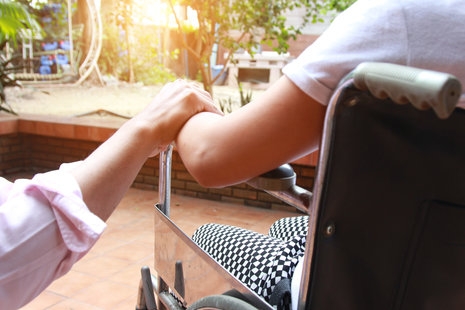Adults with Cerebral Palsy Face Depression and Anxiety Risks
Orange County, CA - January 2nd, 2019 - The lack of research on aging with cerebral palsy (CP) has a direct effect on the care services provided. Children with CP usually have access to specialized care, but as adults, they are discharged from these services and often struggle to find health professionals with knowledge of their condition. The struggle to find care could also affect the mental health of adults with cerebral palsy.
While CP is a blanket term commonly described by loss or impairment of motor function, CP caused by brain damage, the brain damage is caused by brain injury or abnormal development of the brain that occurs while a child’s brain is still developing (before birth, during birth, or immediately after). Cerebral Palsy affects body movement, muscle control, muscle coordination, muscle tone, reflex, posture, and balance. It can also impact fine motor skills, gross motor skills, and oral motor functioning.
A new study published in JAMA Neurology shows that adults with cerebral palsy have a higher risk of developing depression and anxiety than the participants without the condition. A team of researchers led by Dr. Kimberley Smith from the University of Surrey and Dr. Jennifer Ryan from the Royal College of Surgeons in Ireland, look at clinician diagnoses of depression and anxiety in 1,705 adults with CP, aged 18-89 between 1987 to 2015. The adults with CP were compared to 5,115 adults who were the same age, sex and from the same primary care practice.

The results showed that adults with CP had a 28 percent increased risk of being diagnosed with depression and a 40 percent greater risk of being diagnosed with anxiety, compared with the matched participants.
"These findings support the need to consider cerebral palsy as a lifelong condition and to identify and address mental health problems among people with cerebral palsy alongside physical health problems. Despite historically being considered a pediatric condition, the majority of with cerebral palsy live well into adulthood, and many adults with cerebral palsy experience a worsening of impairments, including a decline in mobility. We hope that the findings of the study will help accelerate a response to adults with cerebral palsy who report inadequate provision of coordinated health services worldwide,” said Dr. Jennifer Ryan, study co-author, and StAR Research Lecturer at RCSI.
There are several possible reasons as to why CP leads to an increased risk of depression and anxiety. One is that these mental health disorders develop because of pain or fatigue, which are common in adults with cerebral palsy. And pain and fatigue have both been linked to poorer mental health in the general population. It is anticipated by 2031 there will be a three-times the number of people with cerebral palsy over the age of 65.
Contact Ampronix:

Email: info@ampronix.com
International Sales: +1 949-273-8000
Domestic Sales: 1800-400-7972 for US and Canada
Follow Us:
Share This Article:
View our Product Catalog Online Here
About Ampronix
Ampronix is a renowned authorized master distributor of the medical industry's top brands as well as a world-class manufacturer of innovative technology. Since 1982, Ampronix has been dedicated to meeting the growing needs of the medical community with its extensive product knowledge, outstanding service, and state-of-the-art repair facility. Ampronix prides itself on its ability to offer tailored, one-stop solutions at a faster and more cost-effective rate than other manufacturers. Ampronix is an ISO & ANSI/ESD certified facility. To learn more go here.

Adults with Cerebral Palsy Face Depression and Anxiety Risks Orange County, CA – January 2nd, 2019 – The lack of research on aging with cerebral palsy (CP) has a direct effect on the care services provided. Children with CP usually have access to specialized care, but as adults, they are discharged from these services and often struggle […]



